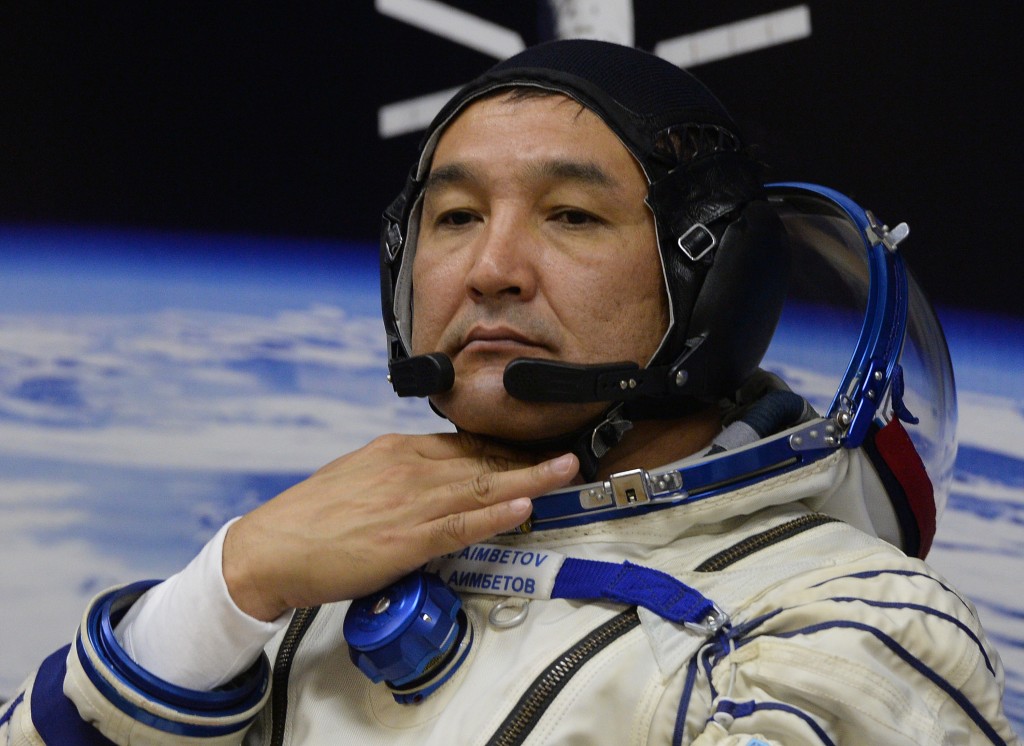ASTANA – With the Sept. 4 arrival of the Soyuz TMA-18M spacecraft at the International Space Station (ISS), Expedition 45 Soyuz Commander Sergei Volkov of the Russian Federal Space Agency (Roscosmos) and visiting crew members Andreas Mogensen of the European Space Agency and Aidyn Aimbetov of the Kazakh Space Agency (Kazcosmos) have started implementing their research programme.
“Got to the Internet! Thanks to the crew of the ISS for the warm welcome!” said Aimbetov in his Twitter account.
The Kazakh cosmonaut had a telephone conversation with Kazcosmos Chairman Talgat Mussabayev, reporting Soyuz TMA-18M passed its space flight in regular mode and safely docked with the ISS. He also noted the satisfactory medical condition of the crew and early application of projects under the Kazakh research programme.
“I feel good, adaptation is normal, proceed to the implementation of a scientific space programme of the Republic of Kazakhstan,” he said.
At the end of the exchange, the head of the country’s space agency congratulated ISS commander Gennady Padalka on achieving a world record for length of stay in space and wished all the ISS participants a safe return to Earth.
“On Earth, I dreamed about space, Earth is now in space dreams. I am continuing to work. Tasks are plentiful, time is short,” the Kazakh cosmonaut wrote in his microblog.
The trio’s work plan includes 1,075 sessions on 63 experiments, as well as maintaining the station and outfitting the ISS equipment delivered by cargo ships.
The Kazakh cosmonaut must hold a series of scientific experiments, in particular to study the radiation environment in orbit and monitor the Earth’s surface in terms of studying environmental disasters.
“The aim of the space research programme is to conduct scientific and technological experiments on board the ISS to obtain new fundamental data and apply the results to be used to solve social and economic problems, as well as to introduce high-tech space technology in the sectors of the economy of Kazakhstan,” said chairman of the Kazcosmos aerospace committee of the Kazakh Ministry of Investment and Development Talgat Mussabayev in an exclusive interview with kazpravda.kz.
The Russian Soyuz booster rolled out of a hangar at the historic Baikonur Cosmodrome and rode an auto rail to its launch pad last week, setting up the Sept. 2 launch of the three-man crew hailing from Russia, Denmark and Kazakhstan.


